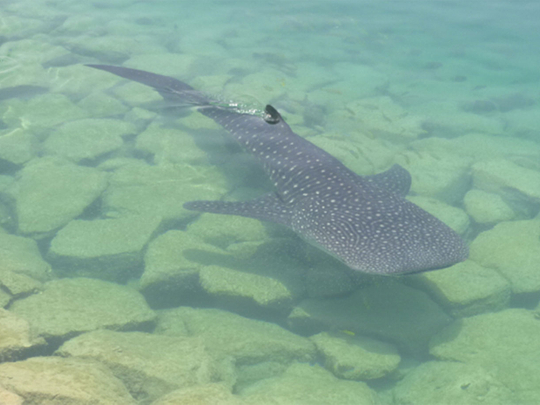
Dubai: A healthy young whale shark was spotted for a few days swimming within the marine structures of Abu Dhabi’s nuclear power plant.
Whale sharks can grow up to 12 meters long, but on average they grow 5.5 to 10 m, and an adult shark can weigh as much as 20.6 tons.
Whale sharks do not pose a threat to humans.
According to the International Union for Conservation of Nature (IUCN), whale sharks tend to like warmer areas and are found in tropical waters all over the world.
ALSO READ:
10ft whale shark spotted in Palm Jumeirah
Sammy the whale shark freed in Dubai
Whale shark sightings along UAE coast not alarming: experts
Whale shark spotted in Dubai Marina
Some have been spotted in cooler waters, but most whale sharks — 75 percent — are found in the Indian and Pacific oceans; 25 percent in the Atlantic.
On its Instagram account, Nawah Energy posted a photo of the exotic whale shark, with the caption: “It is worth mentioning that the shark was probably attracted to Barakah NPP marine structures due to availability of food created in the habitat by the breakwater, which was constructed few years ago to enhance the environmental marine habitats near Barakah.”
In 2016, Gulf News reported that more than 63 marine species in the breakwater habitats, and 35 marine species were discovered using the artificial reef habitat.
The artificial reef was built in partnership with the National Marine Dredging Company (NMDC) and in line with guidance from the Environment Agency-Abu Dhabi (EAD).
Located 3.8 kilometres from the shoreline of Barakah, it is almost 6,700 square metres and built of waste-moulded concrete that offers a favourable habitat for numerous marine species.












